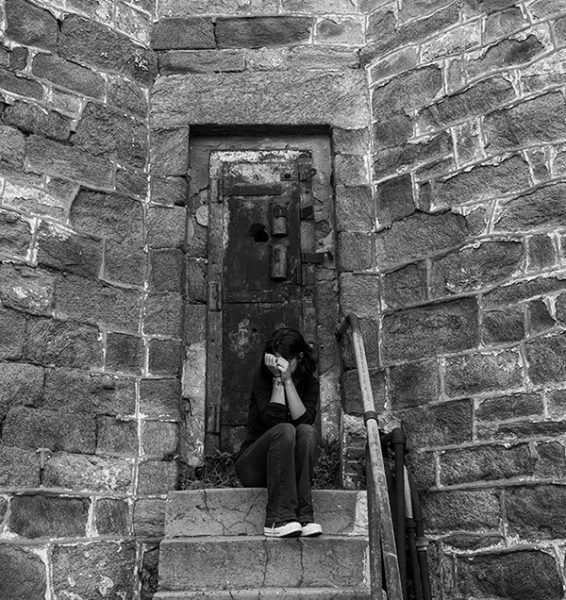A Young Author’s Tips on How to Write a Novel
In this the season of New Year’s Resolutions slowly dwindling, I reach out to aspiring authors, though I claim insight only in that I have successfully completed and self-published a book. No matter your obstacle(s) — editor’s nerves, writer’s block, plot derailment, all of the above — I promise you it is a process you can conquer.
Let us divide the writing of a book into several stages.
Stage 1: Freedom
I dare you to draw on that wilder, scheming part of your brain that likes to word dump. Do it to your heart’s content. Word dump without care for thesaurus or dictionary, or even word count.
Oh, research all you like—fill your search history with those weird questions every writer has—but try not to question yourself. Whenever the inspiration seizes you and your muse is cooperating, scribble down your thoughts in a journal, on the margins of your homework, in the Notes section of your phone, because enough hours of word-dumping and scribbling and your novel will begin to take shape.
Fill your search history with questions, but try not to question yourself.
If you’re the sort of person that needs plans to avoid catastrophic plot failures, plan all you like. It doesn’t matter; just write, and commit to writing a bit every day or every week.
The time frame is yours to contend with, but so is the book.
You could have the most brilliant idea for a novel since Pi Patel was set adrift in a lifeboat with a tiger or Harry Potter received a letter by owl, but if you don’t run with it, it will amount to nothing more than a dream.
Stage 2: Precision
Here’s where it gets a bit trickier, as you know.
Whereas the previous stage relied upon the broad, sweeping strokes of inspiration, you must return with a critical eye. Revisit the scene. Study it like someone on a case—the quality of the light, the tone of her voice, the hint of irony in the name. Prune your words with as much of a focus on structure and sequence as the feeling that they evoke.
Your characters could seem so alive you could shake their hands, but they’ll be stunted without attention to their finer details. And this doesn’t mean sitting them down in front of a mirror and describing the dazzling blue orbs of their eyes—treat them like real people. You understand real people bit by bit. You glean flashes of their soul through chance encounters, and you notice the flecks of gold in their hair only when you’re up close.
Introduce your readers to them gradually, through other characters and through their reactions to events.
The same goes for settings and world-building. The details you provide should be poignant enough to ease the reader into the work, but the most important thing you can realize as a writer is that your reader will always be better than you at creating scenes in her head. Your words serve to help her along, piecing together a vision of the world whose framework you have built but whose color and sound and sensation the reader will fill.
Your reader will always be better than you at creating scenes in her head.
In fact, get someone to read parts of it. Without overdoing the questions, ask her when herself found himself skimming, what characters she identified with or reviled — anything you’re curious about.
Just remember that the reader represents only one individual and not a varied audience. You don’t need to write for anyone, and certainly not for that harsh critic in your head that doubts your authorial choices. Your novel is precisely that: yours.
Recognize that just because some parts of the book need work doesn’t mean the whole thing is terrible. On the contrary, you’d be doing yourself a great injustice if you didn’t work to improve it.
Stage 3: Detachment
We writers grow attached. Not simply to characters (in fact, we may delight in making characters suffer), but to paths the story took.
An attachment running too deep can hurt, rather than help, the process. You’ll know it when you feel it.
It has become boring or repetitive, a plot hole which requires a revolving door of convenient characters or events to fix. My own book, a child writer’s first delve into high fantasy, found itself full of plot holes — I was forced to rework it and scout new directions. It’s not unlike facing the blank spaces of a map. You can either avoid them and opt for known territory, or fill it in as you go, the more exciting, if riskier, of the two options.
The best thing for your novel is then to take a step back and detach yourself from your most beloved ideas.
Steel your heart to them. Try removing a character whose function is short-lived, or change your tone altogether. Introduce an unexpected love interest. Make someone betray his closest friend. Remove the illogical feats of convenience that your hero uses to overpower your villain; make it a struggle. Make the hero bleed.
Write to convey a symbolic meaning rather than a literal one by researching literary motifs and reading—read all you can, classics and up-and-coming—and manipulating events of your novel like the strings of a marionette. Or treat it like an equation with many variables but one solution, and even that is up for a redo. Nothing has to happen precisely as it does.
Write to convey a symbolic meaning rather than a literal one.
___
There’s no one way to write a novel, and there’s no one ‘good’ result. Regarding the process itself, however, certain behaviors will speed you in your creativity and refine your skills.
I encourage you to read writing blogs, reread some of your favorite books, even re-watch some of your favorite films. The commonality of all art is unavoidable; rather than running from it, embrace the deep pool of ideas that have already been introduced, and from them decide how you’d like to introduce your own ideas.
I’ve been editing and polishing The Quest to UthNir for close to five years now, and I still find harmonies with a movie I just saw for the first time or a favorite book I just revisited. It’s a bittersweet recognition that helps guide the story I want to tell.
The better you understand what you’re creating, the closer you will be to having a finished work that we can enjoy.







